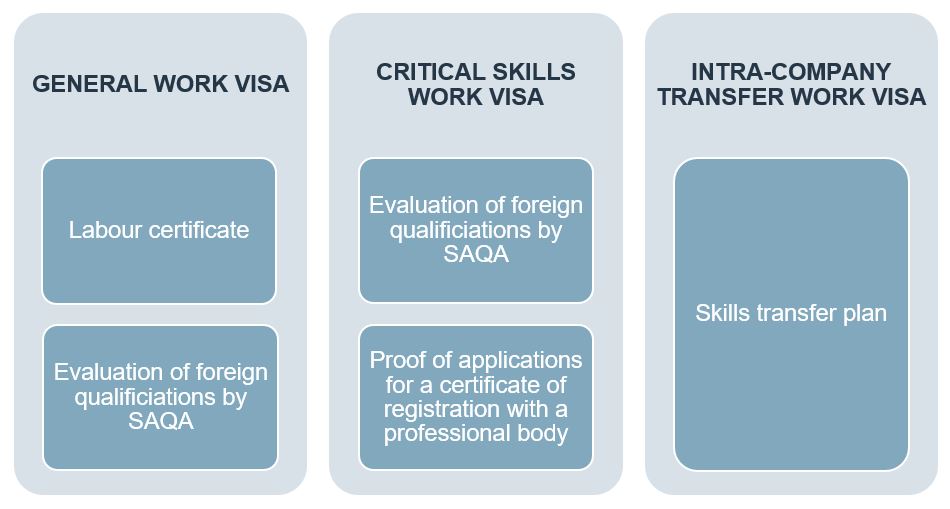Everything You Need to Know About South Africa’s Trusted Employer Scheme Waiver
March 19, 2024
By: Lunga Mani
After months of waiting for the implementation of the Trusted Employer Scheme (TES), the South Africa Department of Home Affairs (DHA) announced that the scheme is in operation.
Members of the scheme requiring foreign talent are now able to obtain it using a streamlined process with fewer documentary requirements. This is a major governmental step in creating an enabling environment for high-impact businesses to operate in South Africa, and in creating employment opportunities for South African citizens and permanent residents.
Additionally, the government managed to accommodate the immigration needs of high-impact investors in the country by implementing the TES as a measure to ease the attraction and retention of talent.
Background: Trusted Employer Scheme (TES)
The TES was announced by the President of South Africa during the 2023 Investment Summit. It was part of the government’s initiative to ensure that companies that comply with all applicable laws benefit from a streamlined immigration process.
After a public consultation process, the DHA released the final requirements for membership of the scheme with a closing date expression of interest to the scheme.
According to the DHA, selected companies will be members of the scheme for five years. Additionally, the implementation of the scheme will be monitored, and any issue identified will be corrected before another window can be opened.
Waiving of Prescribed Requirements
To give effect to the streamlining of the work visa process, the submission of certain documents needed to support the work visas has been waived by the Minister of Home Affairs for the TES pilot participants.
In the case of General Work Visas (GWV), the submission of the labour certificate confirming the non-availability of citizens or permanent residents with qualifications or skills and experience equivalent to those of the applicant was waived.
Additionally, the evaluation of the foreign qualification was waived. Concerning the Critical Skills Work Visa (CSWV), the provision of the evaluation of foreign qualification, together with registration with a professional body was waived.
Regarding the Intra-Company Transfer Work Visa (ICTWV), the provision of the skills transfer plan for seconded employees of the members of the TES was waived (See Figure 1 for the waived requirements).
Fig. 1: List of supporting documents waived for TES members

The waiver of these documents is a great step towards speedy mobilisation of critical resources for organisations and South Africa, as procurement of these documents can take several weeks.
Compliance Requirements
At first look, one would be forgiven for thinking that there are no checks and balances for the work visas issued to the TES members. However, the waivers are not concerning compliance with the Immigration Act, but to the submission of documents proving compliance with certain regulations.
An example of this would be regulation 18(3)(1) where the submission of the Department of Labour certificate has been waived. This certificate confirms that, despite a diligent search, the company could not find a suitable citizen or permanent resident with qualifications or skills and experience equivalent to those of the applicant.
This requirement will sit with the company employing the applicant. For ease of workplace audit by the DHA’s inspectorate, a company would need to keep its own records proving that it underwent a diligent search process and chose the candidate based on her experience and skill.
The waiver of the labour certificate removed the cumbersome process of having to prove this to the Department of Labour and trust the company to follow the rules on its own.
What companies must think more about is the verification of qualifications by SAQA. Is this still required as it is a specialised service? The waiver is that of submission of the documents with the application. This is where the jury is still out. This may be clarified after the 100-day pilot period.
Companies should consider and understand their statutory duties and obligations, which include keeping records supporting their appointment of foreign nationals, whether required for the application submission or not.
With the compliance being moved from being required by the DHA on submission of the work visa application to employer self-checks, one would expect to see immigration audits being put in place in the future to ensure that companies follow the compliance requirements.
Looking Ahead
The optimization of the immigration process, while beneficial to designated members of the TES, underscores the importance of adhering to statutory responsibilities and obligations as integral facets of corporate citizenship within the TES community.
In instances of uncertainty, it is advisable to engage reputable immigration professionals for guidance or support. Moreover, for effective service provision, it is essential to maintain communication with designated key account managers, ensuring alignment with planned projects for adequate support.
Need to Know More?
For more information regarding the TES or South Africa’s broader immigration rules, please reach out to Sub-Saharan Africa Practice Leader Lunga Mani at [email protected].
This blog was published on 19 March 2024, and due to the circumstances, there are frequent changes. To keep up to date with all the latest updates on global immigration, please subscribe to our alerts and follow us on LinkedIn, X, Facebook and Instagram



![Porthole headshot image of Fragomen [Johannesburg][PracitceLeader][LungaMani]](https://www.fragomen.com/a/web/6WcQWfBAw47M3G3iqv1Hsw/39Scq7/lunga_porthole_2019.jpg)











